Jazzspot J
Jazzspot J
Jazz of Japan #261 • Sep 3, 2024 • Brian McCrory
Jazzspot J jazz club, located near Shinjuku-Sanchome and Shinjuku-Gyoemmae stations in Tokyo, Japan (permanently closed)
With low-slung couch seats and candle-lit tables, the dimly-lit Jazzspot J (aka JazzSpot J, Jazz Spot J, or just J) felt like the grandfather of jazz bars in Shinjuku, Tokyo. It’s an image that conveys an older-but-comfortable insider’s hangout, and fits this well-known bar’s over-40-year history and authentic ambience.
Dark, old-fashioned, and somewhat reminiscent of vintage performance showrooms, the club (now closed) was a favorite for both jazz musicians and regular customers, as well as curious jazz-loving visitors to Japan. The stage area with a grand piano at the far end of the room was perfect for small jazz combos, vocal-led groups, or even mini big bands who would squeeze onstage from time to time.
The room’s nostalgic atmosphere, with its well-loved furniture and timeworn decor, may have seemed outdated or even stuffy at first. However, the professional and well-dressed staff made customers feel warmly welcomed as they sunk into the comfy couches and took in the charm of the room.
The retro feeling of this jazz club even extended to Jazzspot J’s online calendar of events, which typically featured a photo of a hand-drawn, colored sheet of information, like the flyers and small posters used as winsome schedules affixed to some shops’ doors or walls.
Of course, live jazz was the main attraction at Jazzspot J, and the excellently curated calendar of events kept regular customers delighted with a combination of favorite local stars, up-and-coming musicians, and even overseas acts on occasion. One of the recurring acts at Jazzspot J was the Yuji Ohno trio, the jazz piano trio behind the funky theme music for the renowned Japanese spy animation Lupin the Third.
Like gift wrapping around the musical space at Jazzspot J, the venue’s walls served as showcases for visual art. Reflecting the exciting spontaneity of jazz, a rotating gallery of art and showcases enhanced the space with moodily understated, captivatingly abstract, or simply beautiful pieces that would pique the audience’s interest like unpredictable improvisation. The striking artwork deepened the jazz atmosphere with paintings, drawings, and creations by various artists who were often local Japanese artists who featured their solo exhibitions.
The conventional jazz bar menu included cocktails, drinks, pizzas, pasta, and snacks.
Although Jazzspot J closed in 2020 after 41 years of business, memories of special music and nights spent at this jazz haven live on in the hearts of many jazz musicians and fans. Like Pit Inn, another long-lived and much-loved jazz mecca in the Shinjuku area, there was even a book written about Jazzspot J and its history.
Finally, one last remaining tribute to Jazzspot J lives on in the form of another physical artifact kept at the younger jazz spot Kohaku, where Jazzspot J’s symbolically inscribed bass drum now abides.
For more information:
- Jazzspot J’s website (web archive snapshot from 2019)
- located near Shinjuku-sanchome and Shinjuku-gyoemmae stations in Tokyo, Japan
Note: Jazzspot J has permanently closed.
Images
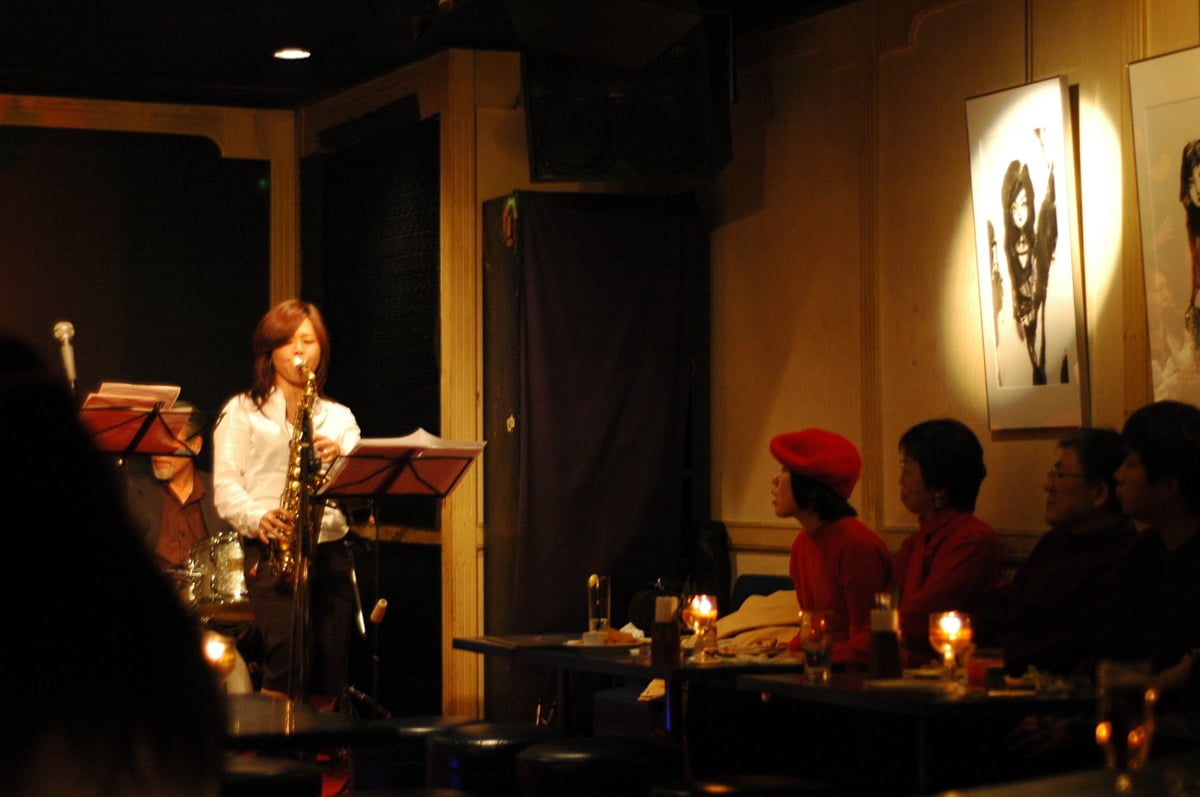
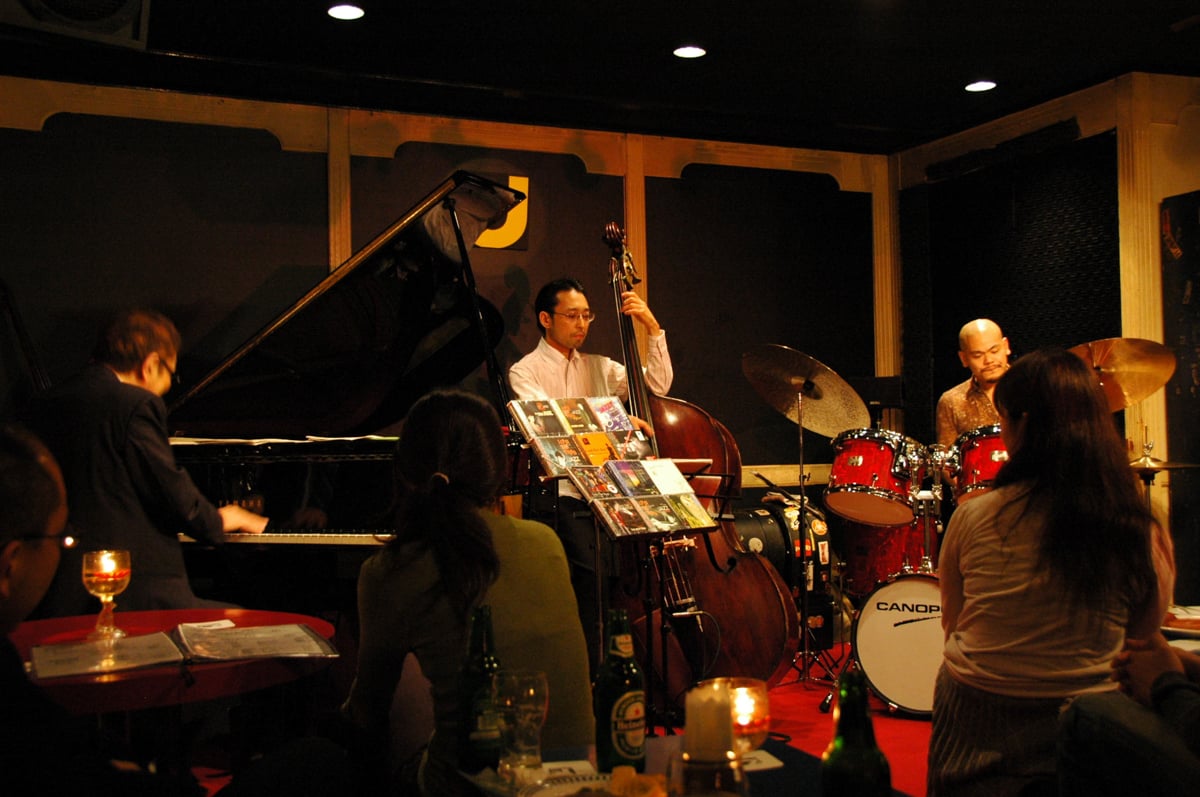
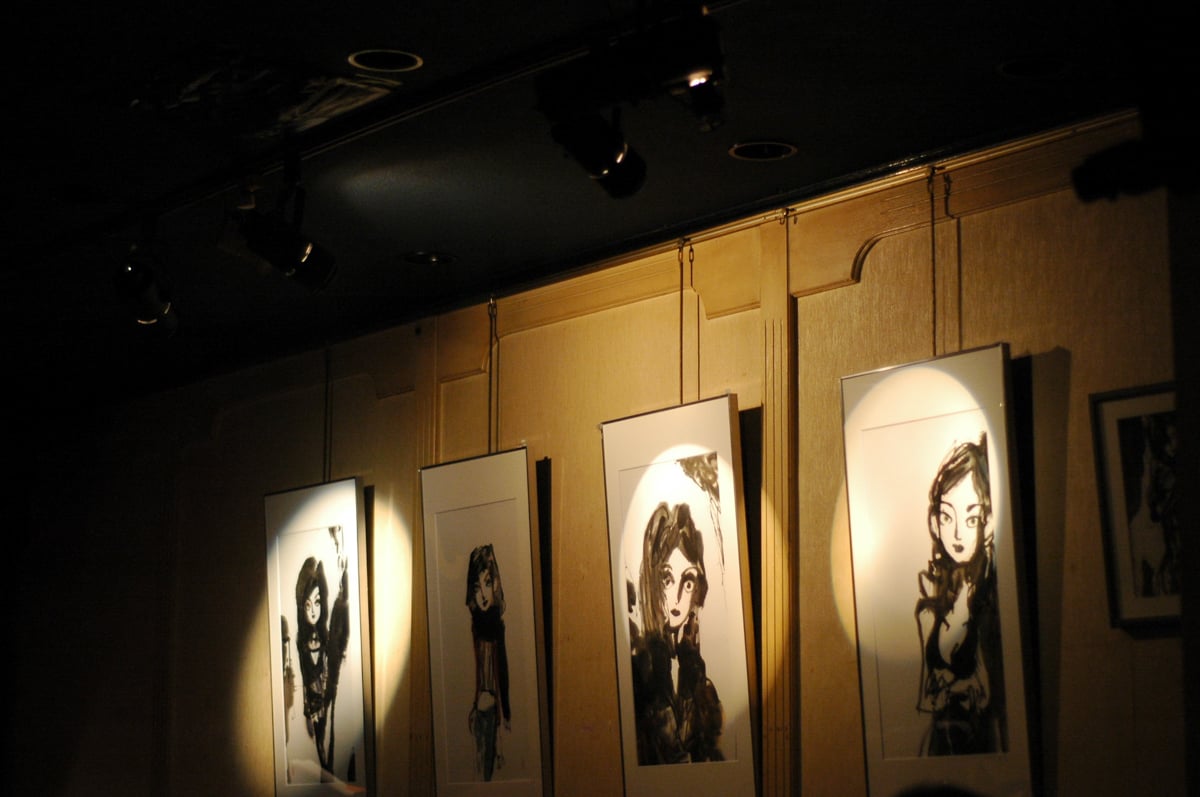
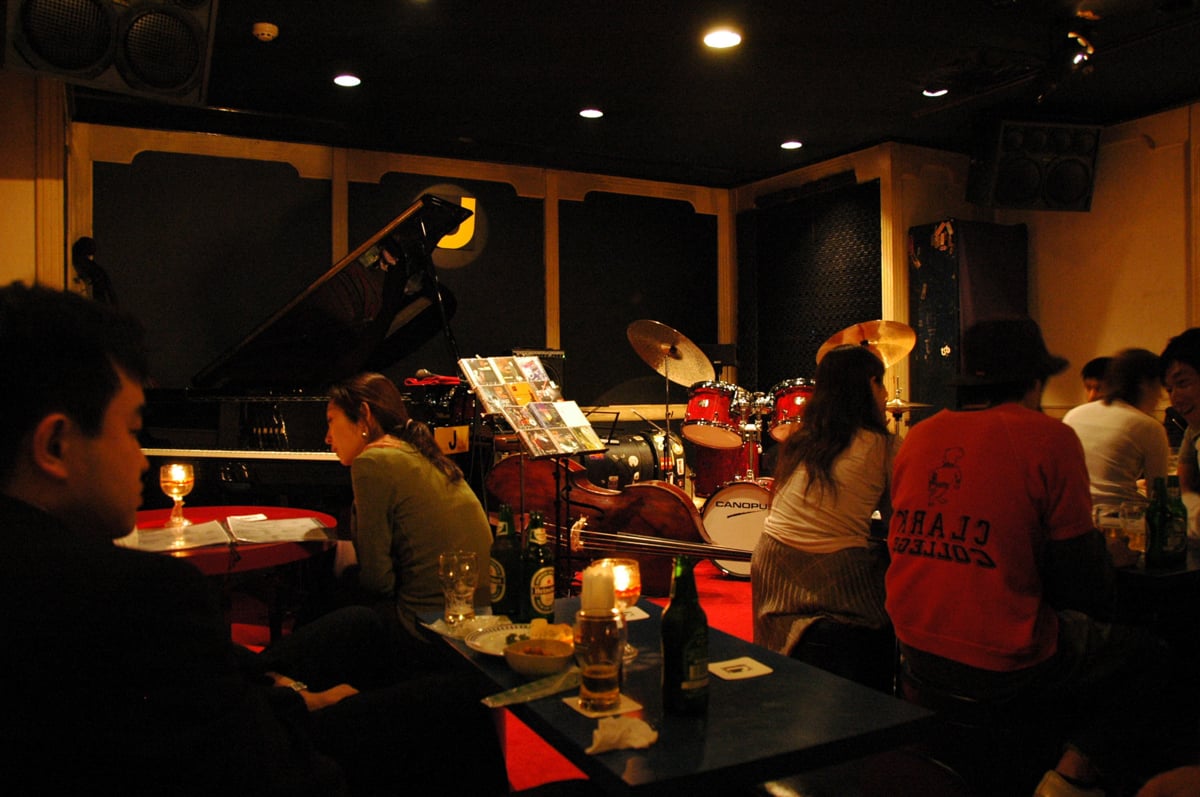
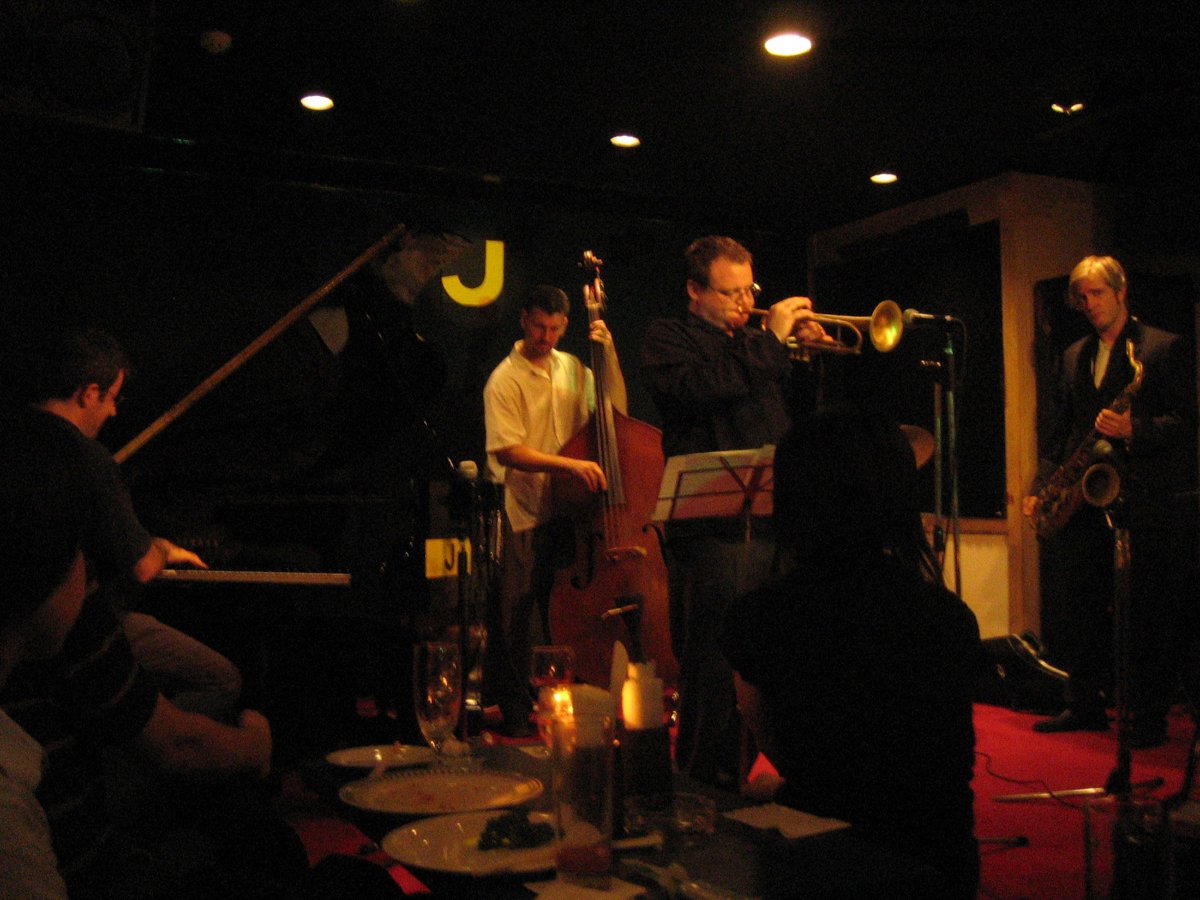
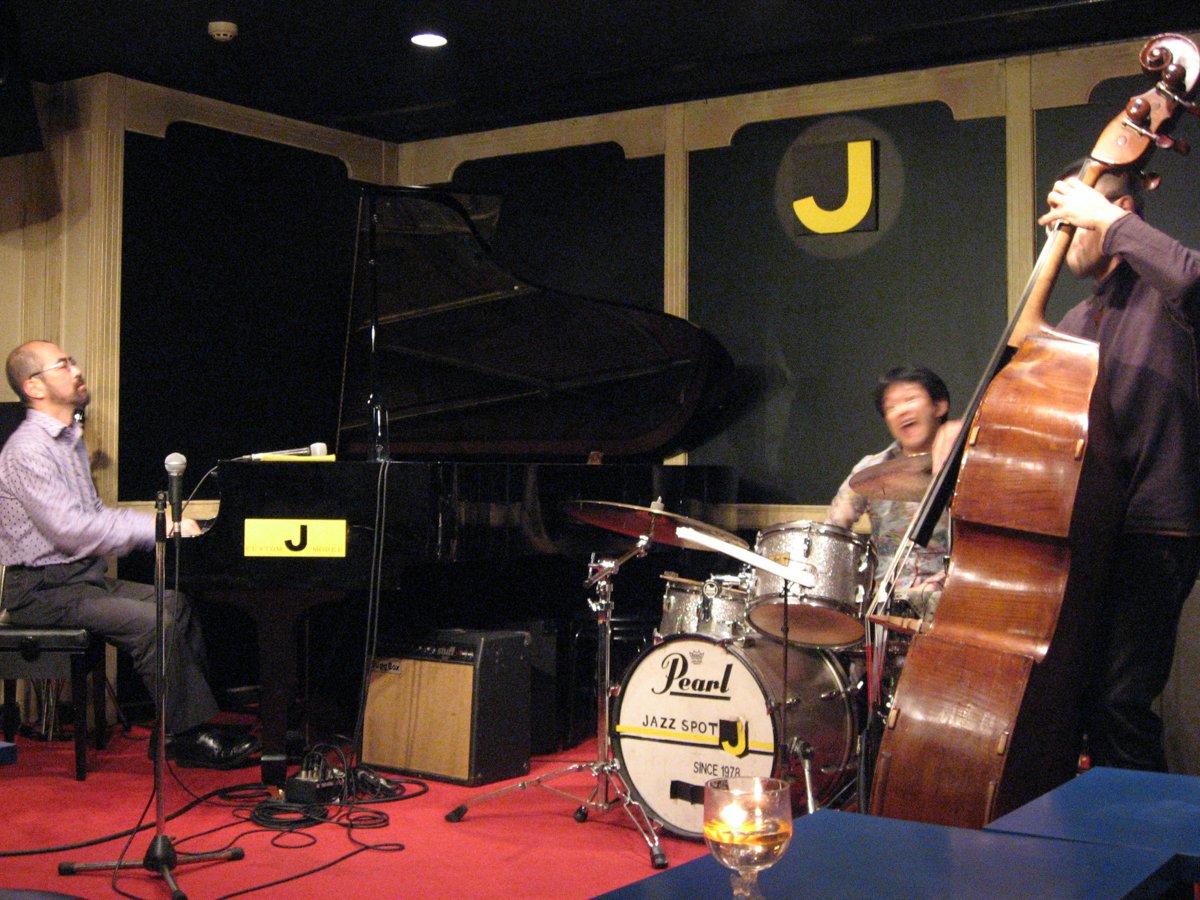
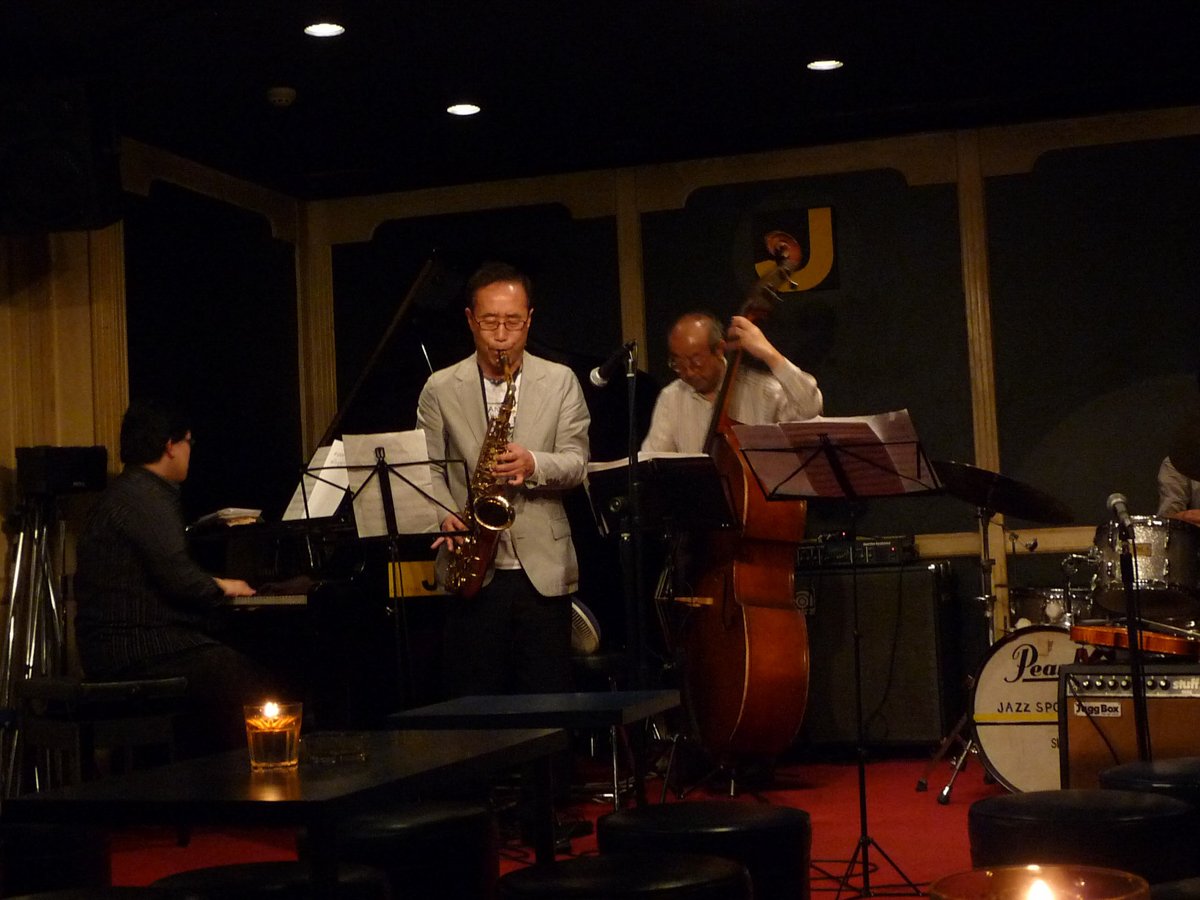
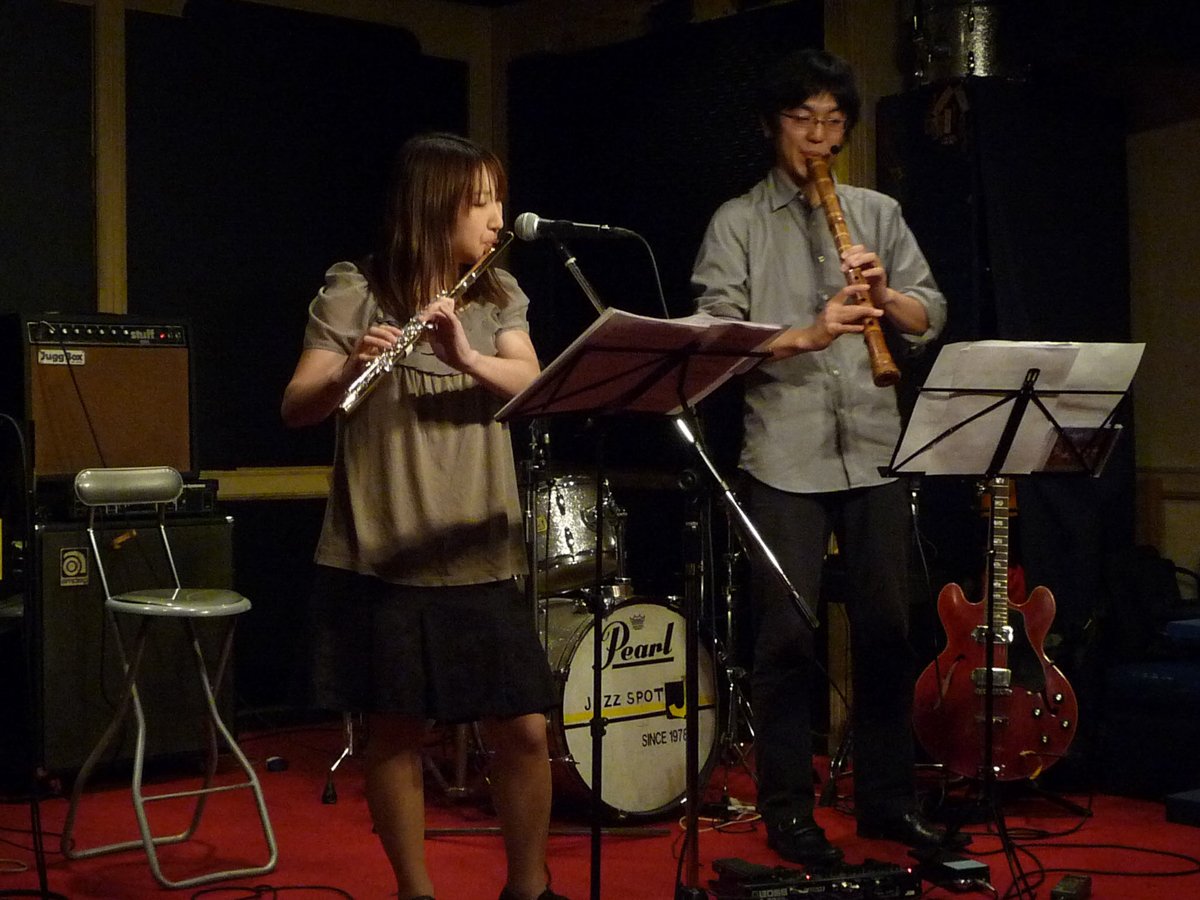
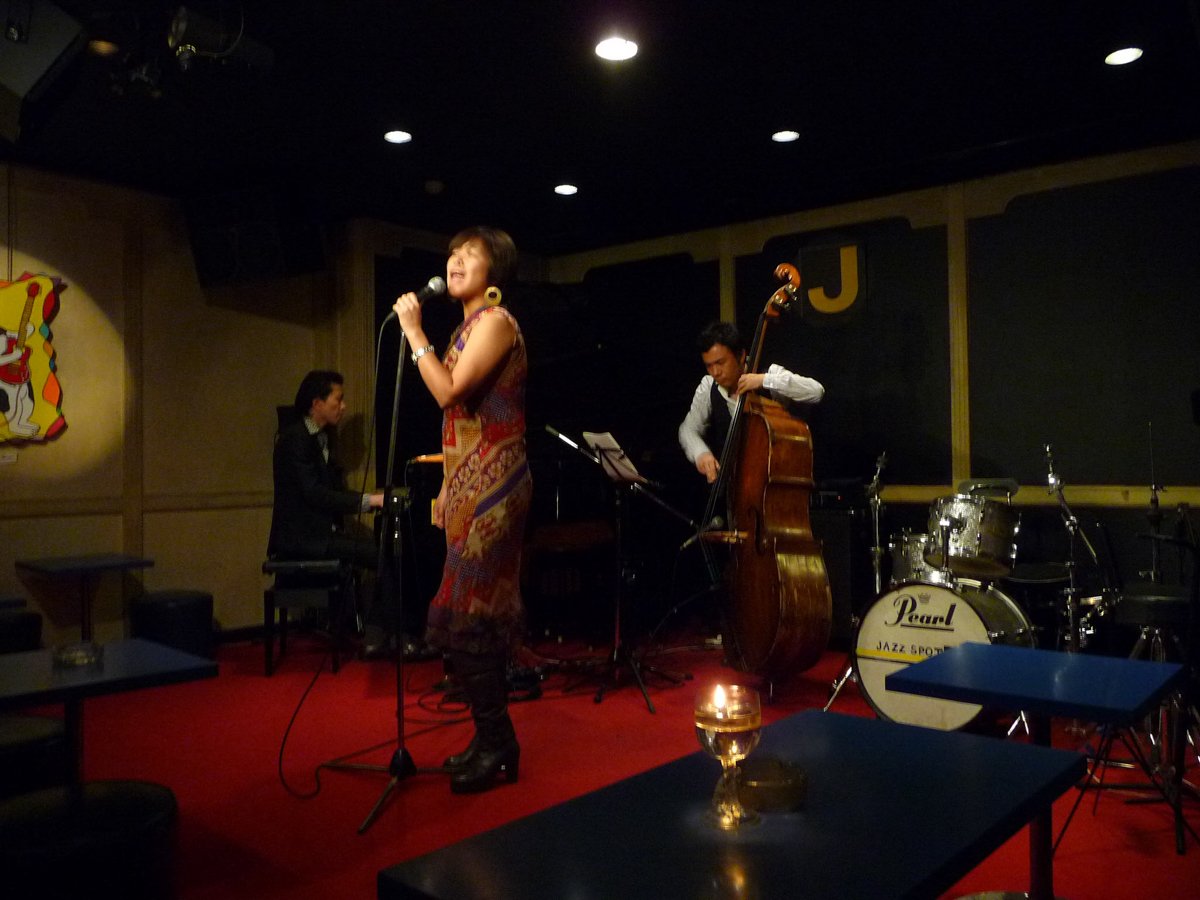
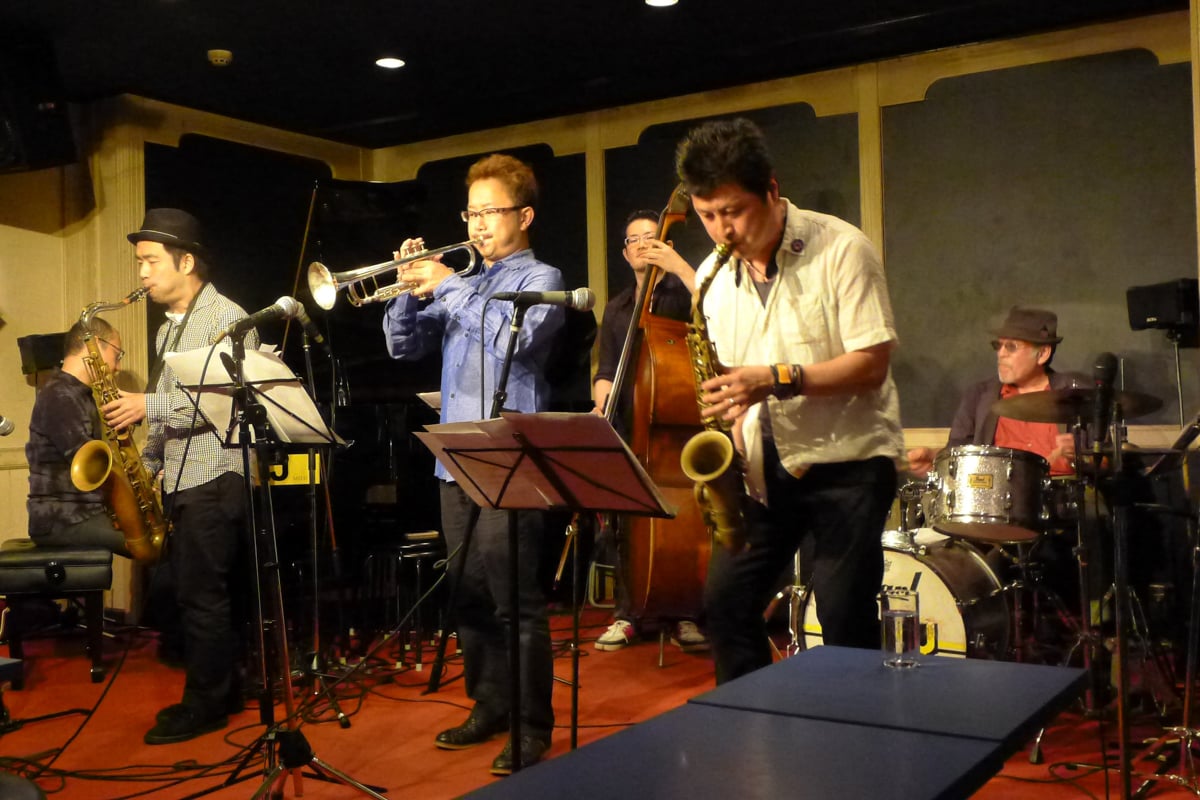
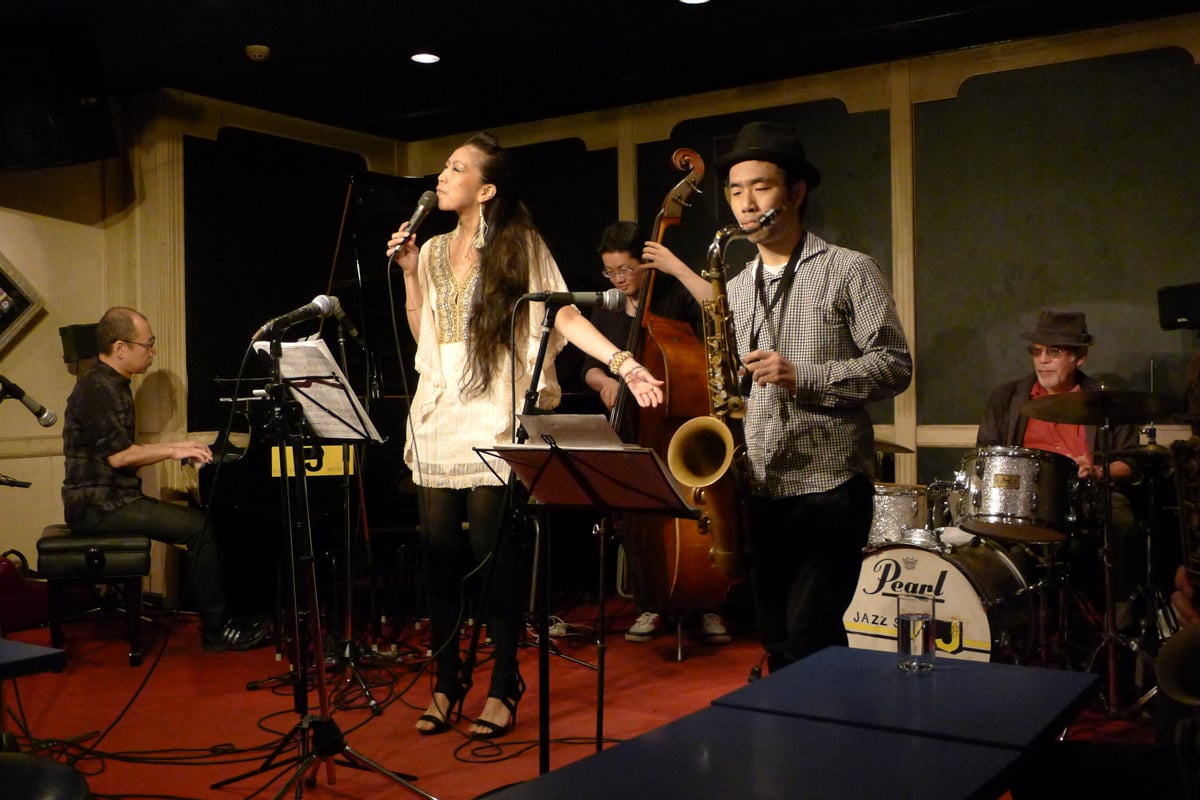
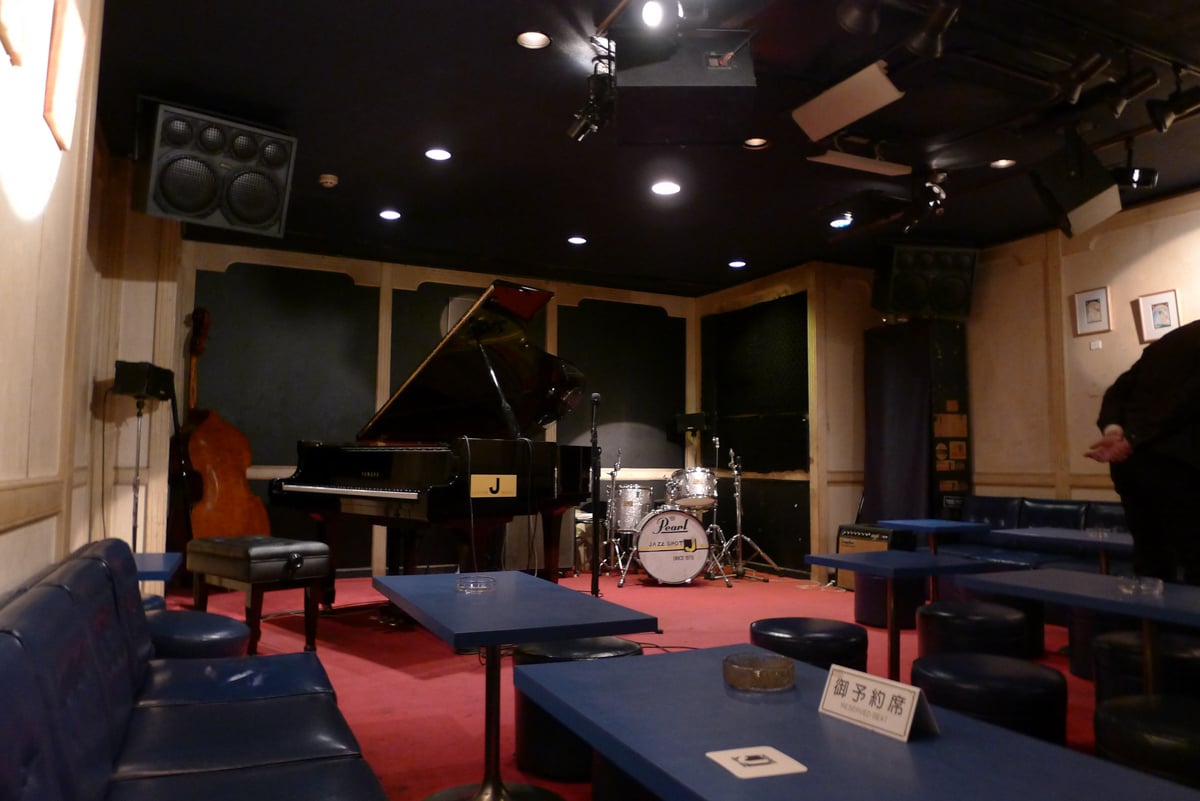
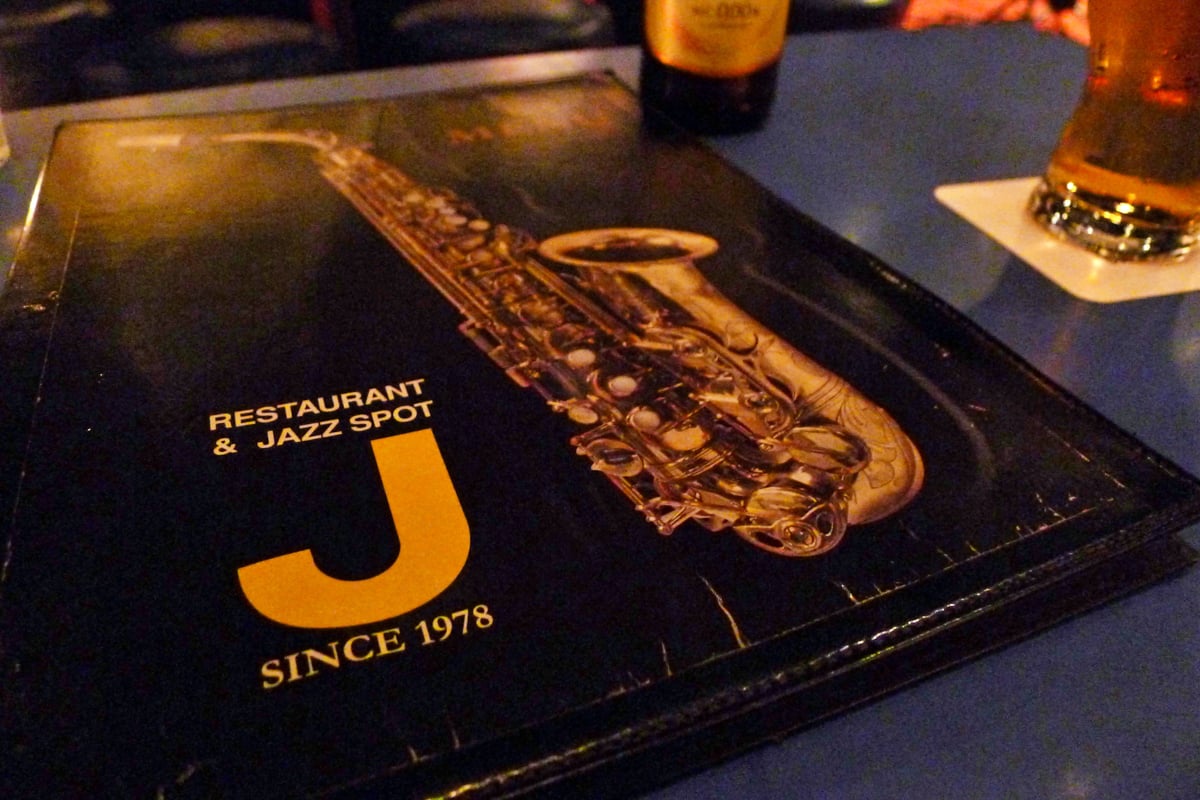
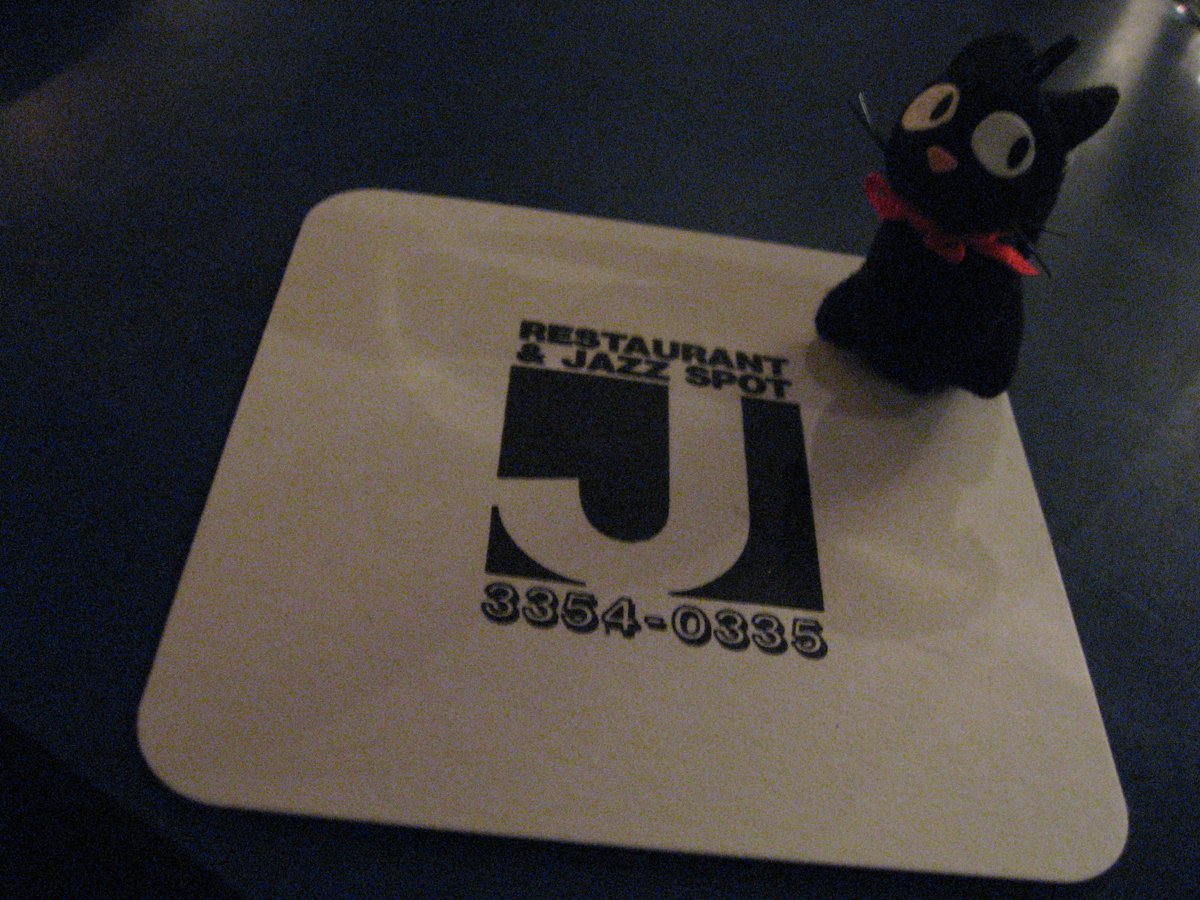
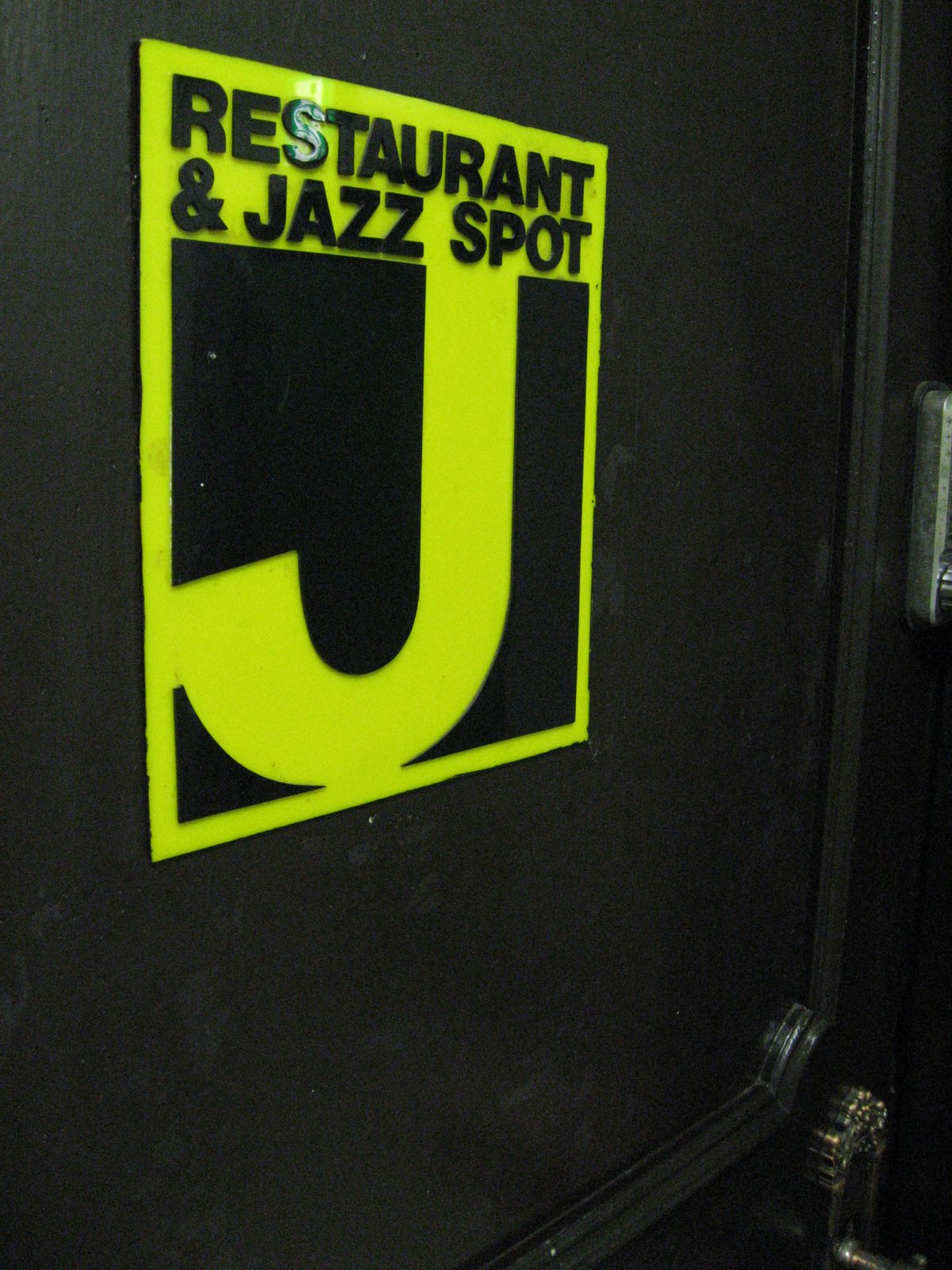
Add a comment: